Presidential hopefuls: Biographies
The Election Commission (RIK) has Monday accepted nine bids for the Jan. 20 presidential election.
Tuesday, 01.01.2008.
15:51

The Election Commission (RIK) has Monday accepted nine bids for the Jan. 20 presidential election. The candidates will run in a historic vote, that will produce the first president in Serbia's history as an independent state. We bring you the biographies of four front-runners in the race. Presidential hopefuls: Biographies Boris Tadic, President of the Democratic Party (DS) and incumbent president of Serbia: Born on January 15, 1958, in Sarajevo, Bosnia-Herzegovina. Tadic grew up in Belgrade where he studied at the Faculty of Philosophy, where he earned his masters degree. As a student, he supported himself by selling newspapers, working as a journalist at Radio Index 202, and later as a psychologist at a Belgrade psychiatric clinic, followed by a stint as a high school teacher. He was also employed by the military, and later with the Belgrade Institute of Psychology, to in 1997 establish and lead the Center for Development of Democracy and Political Skills. Until 2002, he worked on a regional project to establish a system of political education in the southeast European countries. Since 2003, he was a professor of politics and advertising at the Belgrade University. As a student, Tadic helped form the semi-legal Open University. Due to this and a string of other anti-regime activities during the communist Yugoslavia, he was arrested on several occasions in the 1980s. He joined the Democratic Party when it was founded in 1990, to become its main board secretary, executive board member, and deputy president in the 1990s. Tadic was elected party president in February 2004. In November 2000, he was appointed Federal minister for telecommunications. On December 16, 2002, Tadic became deputy speaker of the Federal parliament, to be named Federal defense minister on March 17, 2003. He held the post until April of next year. Tadic became Serbia's president on June 27, 2004, after a run-off against Tomislav Nikolic. He won 1,681,528 votes (53.24 percent). Tadic speaks English and French. He is married and a father of two girls. Boris Tadic (FoNet) Tomislav Nikolic, Deputy President of the Serb Radical Party (SRS):Born on February 15, 1952, in Kragujevac, central Serbia. Nikolic dropped out of a Law School to join a construction company. In 1978, he was put in charge of investments and maintenance in a local enterprise, to later become the technical director of Kragujevac Public Communal Company in 1992. Nikolic first entered politics as a member of the National Radical Party in Kragujevac. He initiated the merging of this party and local councils of the Serb Chetnik Movement, led at that time by Vojislav Seselj. The new party that emerged from this in February 1991 was the Serb Radical Party (SRS). Seselj was immediately voted party leader, with Nikolic as his deputy. His position has since been confirmed four times. He entered the Serbian parliament as lawmaker on several occasions, for the first time in 1992. When the Radicals entered Milosevic's SPS-led government for the first time on May 24, 1998, Nikolic was appointed deputy prime minister. He held the same position in a reshuffled Federal Republic of Yugoslavia (SRJ) cabinet from August 12, 1999, until the fall of the Milosevic regime in October 2000. Apart from being a member of the Serbian parliament, he was also elected to the Federal assembly on three occasions, in 1992, 1998, and in 2000. Nikolic was elected Serbian parliament speaker on May 8, 2007, when an ad-hoc coalition made up of the Democratic Party of Serbia (DSS), New Serbia (NS) and the Socialist Party of Serbia (SPS) backed his bid. He resigned when 128 members of parliament sought his dismissal five days later, on May 13. He ran for president for the first time in the September 24, 2000 ballot, called to choose the president of the SRJ. Nikolic came in third, behind Vojislav Kostunica and Slobodan Milosevic, having won 280,013 votes, or 5.88 percent. The deputy SRS leader was consequently twice his party's candidate in the presidential votes, both time unsuccessfully. In the November 16, 2003 ballot, he won the most, 1,166,896 votes, but the election fell through with the low turnout. The second time, on June 13, 2004, with modified turnout rules, he made it to the second round with 954,339 votes (30.6 percent), to lose to Boris Tadic, who had support from 1,681,528 voters (53.24 percent), compared to Nikolic's score of 1,434,068 votes (45.5 percent). Nikolic is married and a father of two sons. Tomislav Nikolic (FoNet) Cedomir Jovanovic, President of the Liberal-Democratic Party (LDP):Born on April 13, 1971, in Belgrade. Jovanovic studied drama at the Faculty of Dramatic Arts, from which he graduated in 1998. He was engaged as freelance journalist with TV Politika, weekly NIN, now-defunct news agency Ticker, daily Borba and other publications. Jovanovic was one of the leaders of a student protest which lasted for three months in 1996 and 1997, called after the November 1996 local elections were rigged by the Milosevic government. Jovanovic also took part in the demonstrations organized in late 1999, by a coalition dubbed the Alliance for Change (SZP). As the editor of a SZP newsletter, he was interviewed by police and fined several times. He was also the founder of the Student Political Club, which in 1998 joined the Democratic Party (DS), making Jovanovic a member of the party's main and executive boards. The Democrats' congress held in October 2001 appointed him as one of party deputy presidents. After the March 2003 assassination of DS leader and Serbian prime minister, Zoran Djindjic, Jovanovic and two other deputies led the party until February 2004, when Boris Tadic was appointed its leader. After disciplinary violations, the Democrats decided to expel Jovanovic from the party ranks in late 2004. A year later, Jovanovic formed the LDP. Jovanovic was a member of parliament on the Democratic Opposition of Serbia (DOS) ticket, a coalition that brought down the Milosevic regime, after the 2000 parliamentary elections. Prime Minister Zoran Zivkovic, who took over after Djindjic's death, made him one of his deputies on March 18, 2003. His professional achievements include authoring several theater plays. Jovanovic is married and a father of two. Cedomir Jovanovic (FoNet) Velimir Ilic, President of New Serbia (NS): Born on May 28, 1951, in Cacak, central Serbia. Ilic studied in Belgrade, but earned his masters degree at the Technical Faculty in Cacak in 2005. Ilic started his career in a local construction company in Cacak, to later establish his private company. He stayed in the realms of private entrepreneurship for the next 20 years, until he was elected municipal president of his home town in December 1996. He was a member of Vuk Draskovic's Serbian Renewal Movement (SPO) from 1990 until 1997. After he was expelled, he formed his own party the next year, naming it New Serbia. Ilic was elected to the Serbian parliament in 1993, while he made it to the Federal assembly in 2000. He was twice the mayor of Cacak, in 1996, and again in 2000. Ilic already ran for president once, in November 2003, when he came in third, having won 229,229 votes (9.08 percent). He was once again elected to the parliament in December 2003, and became the minister for capital investments in the Kostunica government the next year. The leader of New Serbia was appointed infrastructure minister in May 2007. Ilic was married three times and is a father of five children. Velimir Ilic (FoNet)
Presidential hopefuls: Biographies
Boris Tadić, President of the Democratic Party (DS) and incumbent president of Serbia: Born on January 15, 1958, in Sarajevo, Bosnia-Herzegovina.Tadić grew up in Belgrade where he studied at the Faculty of Philosophy, where he earned his masters degree.
As a student, he supported himself by selling newspapers, working as a journalist at Radio Index 202, and later as a psychologist at a Belgrade psychiatric clinic, followed by a stint as a high school teacher.
He was also employed by the military, and later with the Belgrade Institute of Psychology, to in 1997 establish and lead the Center for Development of Democracy and Political Skills.
Until 2002, he worked on a regional project to establish a system of political education in the southeast European countries.
Since 2003, he was a professor of politics and advertising at the Belgrade University.
As a student, Tadić helped form the semi-legal Open University. Due to this and a string of other anti-regime activities during the communist Yugoslavia, he was arrested on several occasions in the 1980s.
He joined the Democratic Party when it was founded in 1990, to become its main board secretary, executive board member, and deputy president in the 1990s.
Tadić was elected party president in February 2004.
In November 2000, he was appointed Federal minister for telecommunications.
On December 16, 2002, Tadić became deputy speaker of the Federal parliament, to be named Federal defense minister on March 17, 2003. He held the post until April of next year.
Tadić became Serbia's president on June 27, 2004, after a run-off against Tomislav Nikolić. He won 1,681,528 votes (53.24 percent).
Tadić speaks English and French. He is married and a father of two girls.

Nikolić dropped out of a Law School to join a construction company. In 1978, he was put in charge of investments and maintenance in a local enterprise, to later become the technical director of Kragujevac Public Communal Company in 1992.
Nikolić first entered politics as a member of the National Radical Party in Kragujevac. He initiated the merging of this party and local councils of the Serb Chetnik Movement, led at that time by Vojislav Šešelj.
The new party that emerged from this in February 1991 was the Serb Radical Party (SRS).
Šešelj was immediately voted party leader, with Nikolić as his deputy. His position has since been confirmed four times.
He entered the Serbian parliament as lawmaker on several occasions, for the first time in 1992.
When the Radicals entered Milošević's SPS-led government for the first time on May 24, 1998, Nikolić was appointed deputy prime minister.
He held the same position in a reshuffled Federal Republic of Yugoslavia (SRJ) cabinet from August 12, 1999, until the fall of the Milošević regime in October 2000.
Apart from being a member of the Serbian parliament, he was also elected to the Federal assembly on three occasions, in 1992, 1998, and in 2000.
Nikolić was elected Serbian parliament speaker on May 8, 2007, when an ad-hoc coalition made up of the Democratic Party of Serbia (DSS), New Serbia (NS) and the Socialist Party of Serbia (SPS) backed his bid.
He resigned when 128 members of parliament sought his dismissal five days later, on May 13.
He ran for president for the first time in the September 24, 2000 ballot, called to choose the president of the SRJ.
Nikolić came in third, behind Vojislav Koštunica and Slobodan Milošević, having won 280,013 votes, or 5.88 percent.
The deputy SRS leader was consequently twice his party's candidate in the presidential votes, both time unsuccessfully.
In the November 16, 2003 ballot, he won the most, 1,166,896 votes, but the election fell through with the low turnout.
The second time, on June 13, 2004, with modified turnout rules, he made it to the second round with 954,339 votes (30.6 percent), to lose to Boris Tadić, who had support from 1,681,528 voters (53.24 percent), compared to Nikolić's score of 1,434,068 votes (45.5 percent).
Nikolić is married and a father of two sons.

Jovanović studied drama at the Faculty of Dramatic Arts, from which he graduated in 1998.
He was engaged as freelance journalist with TV Politika, weekly NIN, now-defunct news agency Ticker, daily Borba and other publications.
Jovanović was one of the leaders of a student protest which lasted for three months in 1996 and 1997, called after the November 1996 local elections were rigged by the Milošević government.
Jovanović also took part in the demonstrations organized in late 1999, by a coalition dubbed the Alliance for Change (SZP). As the editor of a SZP newsletter, he was interviewed by police and fined several times.
He was also the founder of the Student Political Club, which in 1998 joined the Democratic Party (DS), making Jovanović a member of the party's main and executive boards.
The Democrats' congress held in October 2001 appointed him as one of party deputy presidents.
After the March 2003 assassination of DS leader and Serbian prime minister, Zoran Đinđić, Jovanović and two other deputies led the party until February 2004, when Boris Tadić was appointed its leader.
After disciplinary violations, the Democrats decided to expel Jovanović from the party ranks in late 2004. A year later, Jovanović formed the LDP.
Jovanović was a member of parliament on the Democratic Opposition of Serbia (DOS) ticket, a coalition that brought down the Milošević regime, after the 2000 parliamentary elections.
Prime Minister Zoran Živković, who took over after Đinđić's death, made him one of his deputies on March 18, 2003.
His professional achievements include authoring several theater plays.
Jovanović is married and a father of two.

Ilić studied in Belgrade, but earned his masters degree at the Technical Faculty in Čačak in 2005.
Ilić started his career in a local construction company in Čačak, to later establish his private company. He stayed in the realms of private entrepreneurship for the next 20 years, until he was elected municipal president of his home town in December 1996.
He was a member of Vuk Drašković's Serbian Renewal Movement (SPO) from 1990 until 1997. After he was expelled, he formed his own party the next year, naming it New Serbia.
Ilić was elected to the Serbian parliament in 1993, while he made it to the Federal assembly in 2000.
He was twice the mayor of Čačak, in 1996, and again in 2000.
Ilić already ran for president once, in November 2003, when he came in third, having won 229,229 votes (9.08 percent).
He was once again elected to the parliament in December 2003, and became the minister for capital investments in the Koštunica government the next year.
The leader of New Serbia was appointed infrastructure minister in May 2007.
Ilić was married three times and is a father of five children.











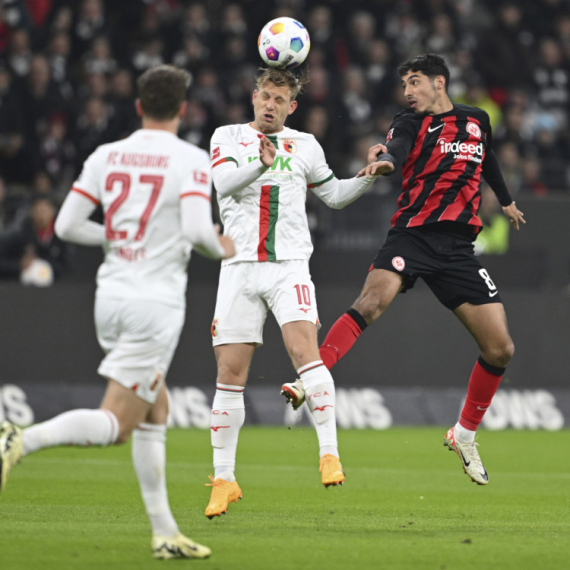

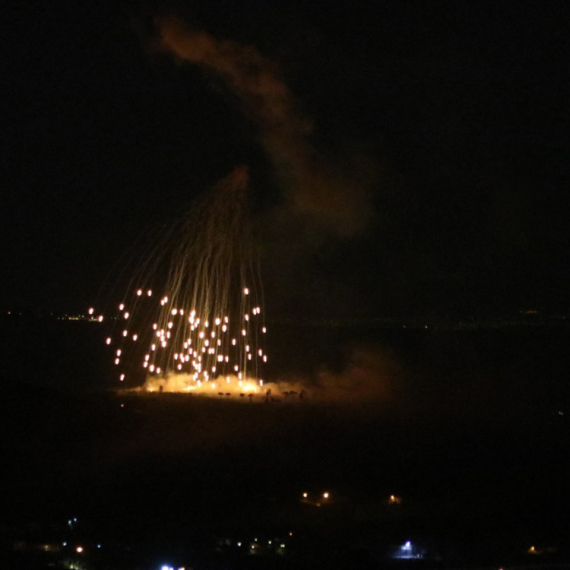

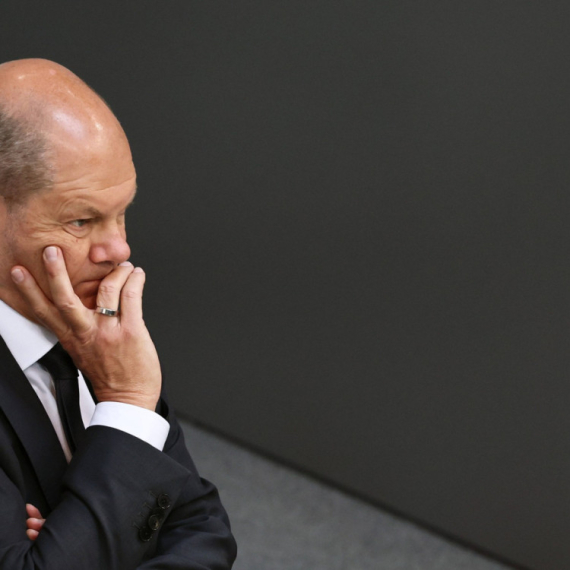
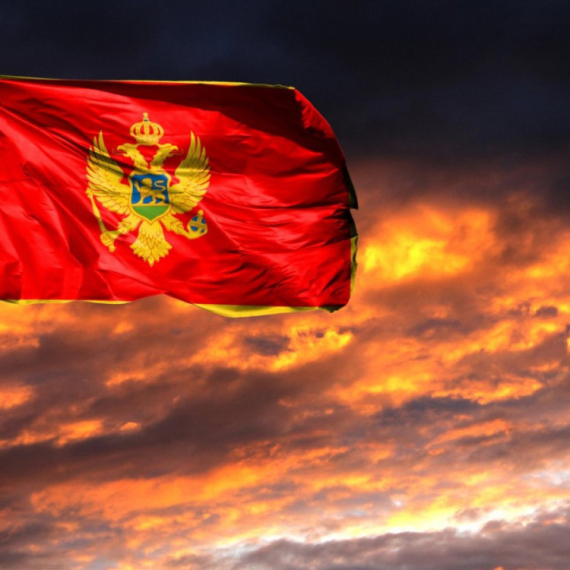
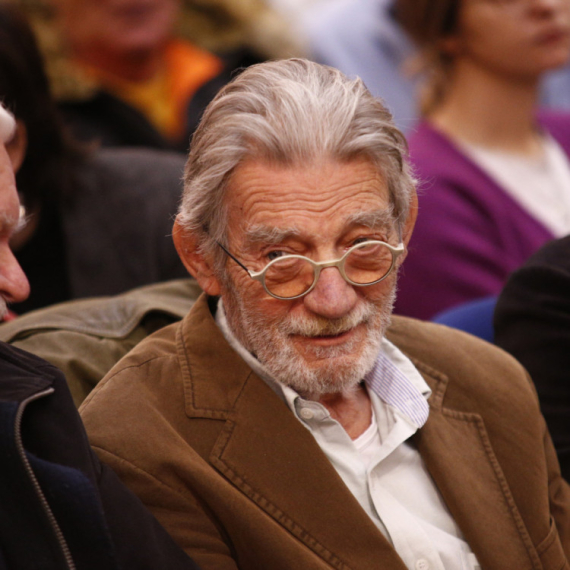









































Komentari 6
Pogledaj komentare